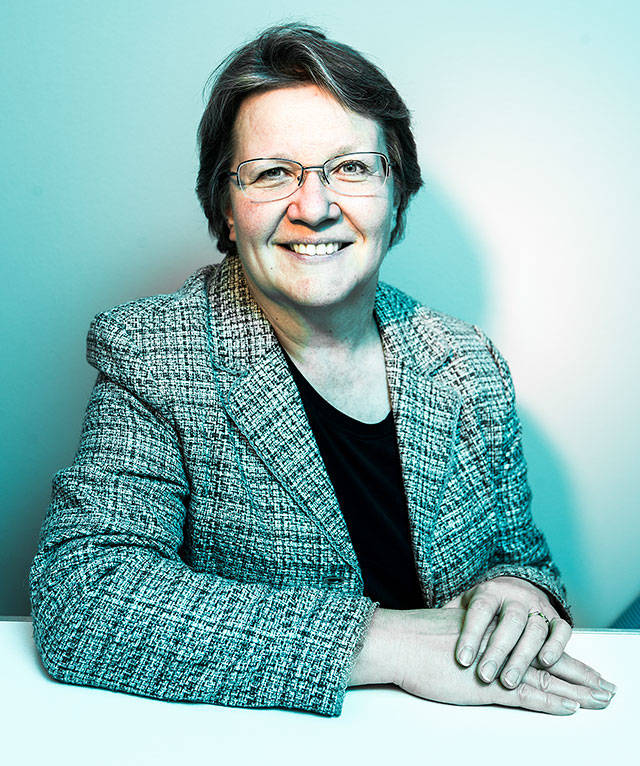This month we’ve been publishing essays by health care leaders about improving the system. They were asked: Now what? With repeal-and-replace shelved for now, what should be done to improve the health care system for patients, communities and health care organizations? What’s right? What’s wrong? What needs to be fixed and what needs to be left alone?
Here’s the second, by Marcy Shimada, chief executive of Edmonds Family Medicine.
When it comes to quality management, author Philip Crosby in his book “Quality is Free” makes the case that simply doing things right and utilizing effective systems can create a work product without defects.
What if we approached health a bit more like this? Not health care such as tests and surgeries but actual health. What if families undertook to make sure each family member was being active for a good portion of the day, not bottling up stress nor “self-medicating” with substances and featuring vegetables as the star of their meals.
What would happen to the collective health of our nation? Could we get closer to saying, “Health is free?” Health care is definitely not free.
It is not all right to have 18 percent of our gross domestic product spent on health care services. When medical institutions become our largest employers, we will have an unsustainable economy.
There are big challenges we need to overcome as a society in thinking about health. About 20 years ago, direct-to-consumer drug advertising really launched.
While the World Health Organization opines these ads have been detrimental for several reasons, perhaps a subtle effect has been overlooked. Underlying “a pill for everything” is a message that we are not responsible for our own overall health.
Why not overeat, under-exercise and over stress? Certainly, there must be a pill to fix the consequences; or at least this is what television tells us. Ironically, more medications lead to more side-effects for which we are willing to swallow even more pills.
A related topic is how we consider death in relationship to health and health care services. American surgeon Atul Gawande notes in “Being Mortal” how our society is unaccepting of the simple fact that we all die.
Spending huge sums in the last months or weeks of life on medications, surgeries and hospital stays attempting to put off death for a short period does not add to quality of life. Oftentimes, these measures injure our quality of life. At a time when folks may want to express a heartfelt, “I love you” or “thank you” as a goodbye message, they are hooked to a ventilator, drugged and cannot speak.
Dr. Gawande echoes a well-known article from National Geographic titled “Blue Zones” that shows the longest living people on the planet are active and have purpose.
The people who’ve lived the longest are not squirreled away in an old folks’ home; they are out and about, helping family and neighbors and making a difference in the lives of others. This busy-ness protects their health and emotions. A sense of purpose really withers in a custodial nursing home “waiting to die.”
Last in this discussion of how we might change health and health care is the conundrum of bureaucracy versus markets.
Market forces, such as advertising to create demand and in turn profits, are a huge factor in high health care costs and in the erosion of personal responsibility for health.
Well-intended government intervention has also added to runaway costs and, in many instances, to the proliferation of unnecessary services, tests and surgeries.
Primary care physicians are relegated to so much documentation they risk losing their fulfillment and focus. Time which was once spent building trust and understanding with patients is instead dedicated to a long checklist of documentation and coding requirements.
The government fears fraud will creep in if the physician is not the one making sure everything is written down “just so” to prove the illness of the patient and to justify the medical-decision-making involved in the treatment plan.
Governmental rules produce amoeba-like effects; while compressing services in one area, a perverse incentive is created to “over treat” with another service, thus greedily bulging out costs.
Too much government intervention results in too many market tactics being deployed, which in turn begets more bureaucratic regulations. The vicious cycle accelerates costs while lowering the overall healthiness of the public.
So what steps can we take to lower our globe-leading spending on health care while not receiving globe-leading outcomes or value?
Can we start as individuals re-framing how we think about health? Can health be a series of every day habits we form to savor, breathe, walk, focus, laugh, connect, forgive and so on?
We will not change society overnight but if individuals commit to self-manage and then impact their families’ health habits, we could move on to influence the health care views and priorities of our employers, insurers and legislators.
Perhaps we could get to globe-leading healthiness and lower our health care costs in the process.
Talk to us
> Give us your news tips.
> Send us a letter to the editor.
> More Herald contact information.

























